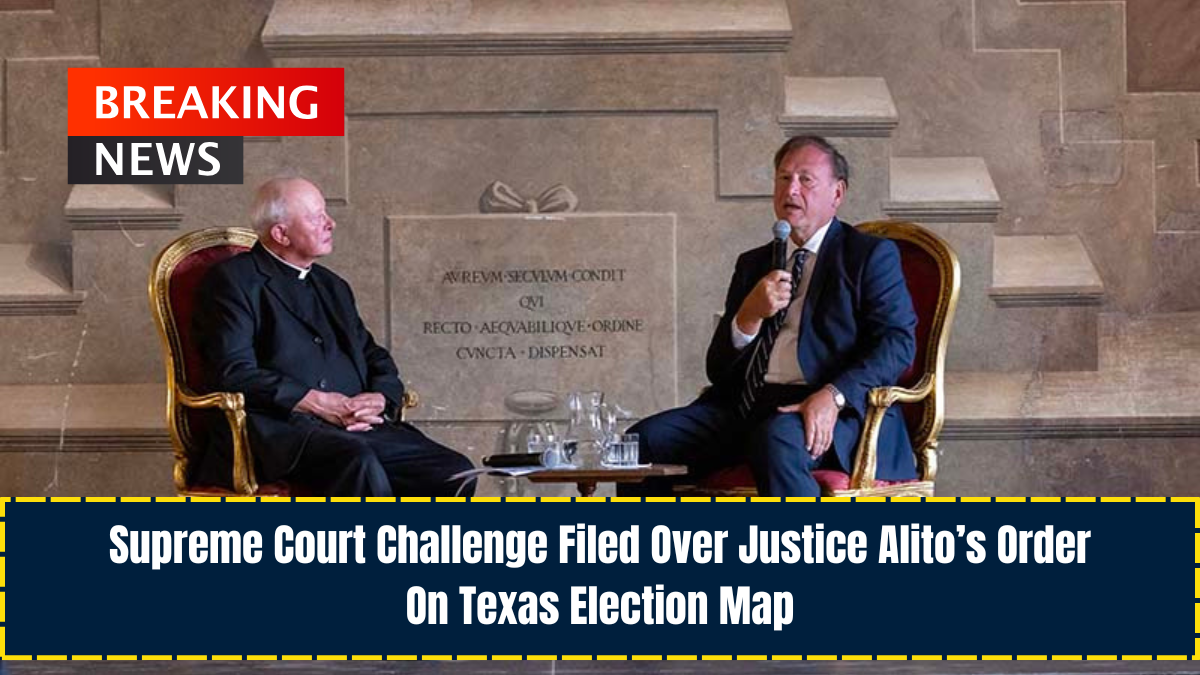Several voting-rights organizations submitted a new petition on Monday urging the U.S. Supreme Court to overturn Justice Samuel Alito’s temporary order that allowed Texas to proceed with its newly adopted congressional Election map.
The groups argue that the state’s plan represents an “extraordinary” example of racial gerrymandering and should not be shielded by the Purcell principle, which discourages courts from altering election rules close to an election.
Their filing came just days after Alito reinstated the Republican-engineered map while the justices review whether it should remain in place for the 2026 midterm elections.
The groups maintain that the lower court correctly found that Black and Hispanic voters are likely to win on claims that the new lines diminish minority voting strength.
Why This Matters
If the lower court’s ruling stands, Texas may be required to revert to the 2021 map, drawn using 2020 census data by the GOP-led Legislature.
The Supreme Court’s forthcoming decision will determine whether the contested 2026 district map will stay in effect while the lawsuit plays out.
Alito’s Emergency Order And Texas’ Defense
Texas Pushes For Quick Intervention
Justice Samuel Alito, overseeing emergency appeals from Texas, issued a temporary stay on Friday, allowing the map to remain active.
Texas argued that changing district boundaries only months before the March primary would create confusion and disrupt election logistics.
The state relied heavily on the Purcell principle, which encourages judicial restraint in cases involving last-minute election changes.
Why Voting-Rights Groups Say Purcell Doesn’t Apply
General Election Still More Than A Year Away
Challengers insist that Purcell is irrelevant in this case, noting:
- The 2026 general election is over a year away
- The candidate filing window remains open for weeks
- Texas election officials testified that deadlines could be moved without administrative issues
They argue that returning to the map used in the previous two election cycles would cause less voter confusion than leaving the disputed one in place.
Lower Court Found Discriminatory Intent In New Map
GOP-Drawn Plan Could Add Five Republican Seats
A three-judge federal panel in El Paso ruled 2–1 last week that Texas’ latest redistricting plan—approved this summer during President Donald Trump’s push to maintain a narrow House majority—was likely crafted with discriminatory intent.
The map is designed to give Republicans five additional seats and is among several GOP-led redistricting efforts facing lawsuits across the country.
Other states affected include:
- Missouri – one additional GOP seat
- North Carolina – one additional GOP seat
- California – voters approved a plan creating five new Democratic seats
Reactions From Both Sides
Texas Attorney General Paxton Defends The Map
Texas Attorney General Ken Paxton criticized the lawsuit, stating:
“The radical left is once again trying to undermine the will of the people. The Big Beautiful Map was entirely legal…”
He claimed Democrats have long used partisan maps to reduce Republican representation and accused them of weaponizing “false accusations of racism.”
Voting-Rights Attorneys Applaud Lower Court Ruling
Attorney Abha Khanna of Elias Law Group, representing voters challenging the new lines, called the decision a “critical victory for voting rights”, arguing that the mid-decade map was a targeted effort to dilute Latino and Black political power.
What Comes Next
Supreme Court Also Considering Major Louisiana Redistricting Case
The Texas dispute arrives as the Supreme Court evaluates a separate Louisiana redistricting case, which could significantly limit the use of race in drawing districts under Section 2 of the Voting Rights Act.
The ruling could influence multiple states engaged in similar legal battles.
The legal fight over Texas’ 2026 congressional map has escalated to the nation’s highest court, with voting-rights groups urging the Supreme Court to reject Justice Alito’s temporary approval of the GOP-favored lines.
As both sides argue over the role of the Purcell principle, discriminatory intent, and election timelines, the Court’s upcoming decision will shape Texas’ political landscape—and potentially set precedent for redistricting battles nationwide.



